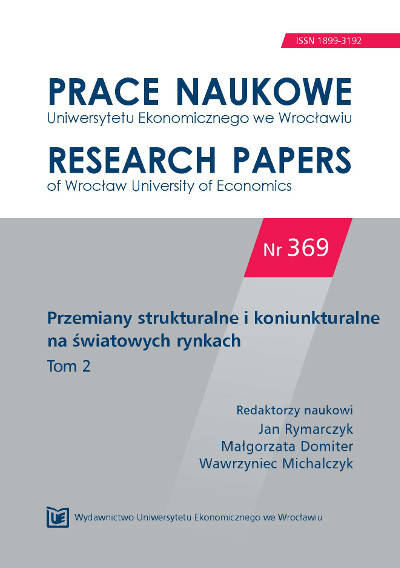Polityka klastrowa – dobrodziejstwo czy przekleństwo dla polskich klastrów?
Cluster policy – benefit or a curse for Polish clusters?
Author(s): Barbara SzymoniukSubject(s): Economy
Published by: Wydawnictwo Uniwersytetu Ekonomicznego we Wrocławiu
Keywords: clusters; cluster policy; cluster management
Summary/Abstract: Over ten years of experience of Polish clusters resulting from the realization of national and European Union cluster policy stimulate deep reflection about its sense and effectiveness to date. One basic fact raises dilemmas: the European Commission has been claiming for years that the clusters’ assistance is aimed at helping small and medium-sized enterprises, so that through developing their innovatory character and competitiveness in regions Europe can cope with the conditions of global competition. However, the actual cluster policy, changeable and inconsistent, complicates and prolongs the process of funding cluster projects. It creates unjustifiable bureaucratic barriers, which not only hinder small and medium- sized enterprises from benefiting from the support, but also force them to violate the principles of fair competition and, consequently, leads to the collapse of most of cluster initiatives. The present article provides a critical assessment of the European Union and national cluster policy realized in Poland to date, as well as of the policy suggested for future financial perspective in the years 2014–2020. The article demonstrates that in spite of the errors committed so far, the support of cluster structures offered by the European Union still provides important guidelines for member states: clustering can be a good, tested practice of creating added value and achieving synergies in regions thanks to the cooperation between enterprises. A prerequisite for success is simplifying project procedures, as well as improving their effectiveness, that is implementing a sensible policy of cluster support, so that the primary aim of the European cluster policy is always kept in sight: to bravely face aggressive global competition.
Journal: Prace Naukowe Uniwersytetu Ekonomicznego we Wrocławiu
- Issue Year: 2014
- Issue No: 369 vol 2
- Page Range: 212-221
- Page Count: 10

